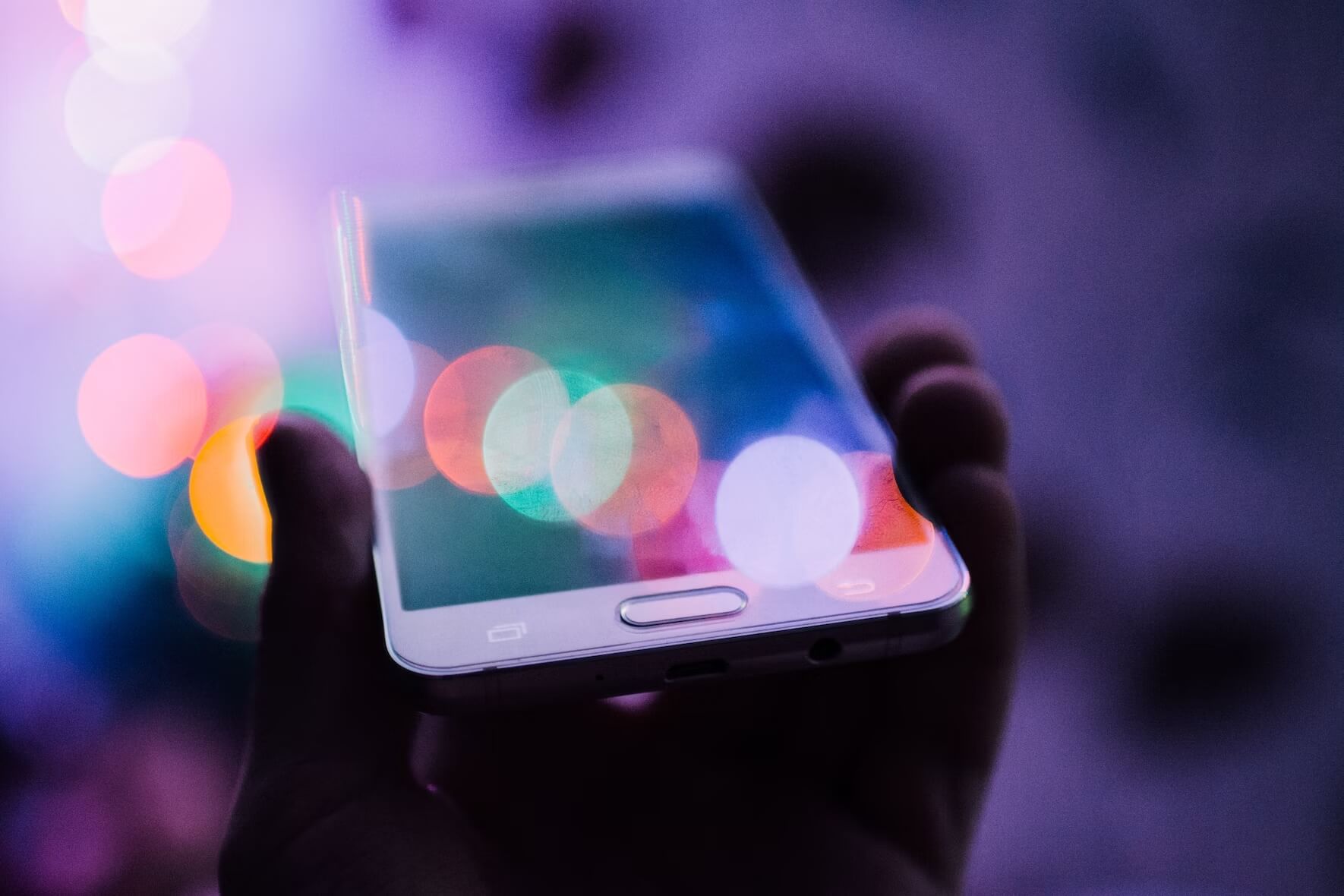In an era dominated by technological advancements, our lives have become intricately intertwined with digital tools and platforms. From smartphones and social media to virtual reality and artificial intelligence, technology has revolutionized the way we live, work, and connect.
However, as we embrace these innovations, it’s crucial to critically examine the profound impact technology has on our mental health.
The Double-Edged Sword of Connectivity
In our digitally-driven world, connectivity has emerged as both a lifeline and a labyrinth, weaving through the fabric of our daily lives. While constant connection offers unparalleled convenience, it conceals an intricate web of challenges underneath.
Constant Connectivity and Stress
The perpetual connectivity afforded by our devices has blurred the once-distinct boundaries between work and personal life. Emails, messages, and notifications flood our smartphones. This onslaught contributes to the staggering statistic that, on average, people checked their phones 144 times a day in 2023, as reported by Fortune.
This constant influx of digital demands makes it increasingly challenging to disconnect and unwind. As a result, individuals find themselves ensnared in a relentless cycle that heightens stress levels and contributes to burnout. Simultaneously, it fosters an overwhelming sense of being constantly tethered to the demands of the digital world.
The Social Media Paradox
While social media platforms promise seamless connection, they concurrently introduce a distinctive set of challenges. The carefully curated nature of online personas often propels individuals into a realm of social comparison, breeding feelings of inadequacy and low self-esteem.
Furthermore, the ceaseless pursuit of likes and validation can spiral into a toxic cycle, significantly impacting the mental well-being of users. Take Facebook, a significant player in the social media landscape. The platform has found itself entangled in a growing number of legal disputes, with allegations pointing to its involvement in exacerbating mental health issues.
According to Statista, projections indicate a continuous rise in the number of Facebook users in the United States. An estimated increase of 10.7 million users is expected from 2024 to 2027.
Alarmingly, research from MIT Sloan School of Management unveils a significant correlation. This is observed between widespread Facebook use across college campuses and a 7% rise in severe depression and a 20% increase in anxiety disorders.
Furthermore, the study indicates that the most vulnerable students sought relief through psychotherapy or antidepressants. In a wider perspective, Facebook’s negative impact on mental health appears to be about 20% of the magnitude experienced by those who lose their jobs.
These distressing findings have prompted an outcry, leading individuals to take legal action. TorHoerman Law reports a significant influx of mental health lawsuits against Meta and other social media entities, with thousands of cases currently documented.
The Facebook lawsuit highlights the growing concerns about the impact of social media platforms on users’ mental well-being. It comes amidst a surge of mental health-related litigation against Meta and other social media entities. Individuals and advocacy groups are taking legal action, accusing Meta, the parent company of Facebook, of deliberately designing platforms.
The lawsuits allege that Facebook’s business practices, including its algorithms, content moderation policies, and advertising strategies, have created an environment. This environment is accused of fostering social comparison, low self-esteem, and a ceaseless pursuit of validation through likes and engagement.
Plaintiffs argue that the carefully curated nature of online personas on Facebook often leads to feelings of inadequacy among users. This contributes to a toxic cycle that significantly impacts their mental health.
The Psychological Toll of Digital Engagement
In an age where screens dominate our daily lives, the psychological consequences of this technological immersion demand careful consideration.
Screen Time and Sleep Disruption
Excessive use of screens, particularly before bedtime, can disturb sleep patterns. The blue light emitted by screens hinders the production of melatonin, a crucial sleep-regulating hormone.
According to the Sleep Foundation, research indicates that 57% of teenagers experiencing sleep problems are those who use technology in their bedrooms. Teens consistently report poorer sleep when they have devices like televisions or smartphones in their bedrooms.
The connection between low sleep quality and various mental health issues, including anxiety and depression, has been established.
Tech Addiction and Dopamine Release
The persistent stimuli delivered by technology activate the release of dopamine, the neurotransmitter associated with pleasure and reward. While this ongoing cycle of rewards initially provides a sense of satisfaction, it can foster addictive behaviors.
Individuals may develop a compulsive need to constantly check their devices, fostering a dependency. This dependency, in turn, can contribute to heightened anxiety and restlessness when they are unable to engage with technology.
The instant gratification provided by these devices establishes a pattern of seeking pleasure, potentially leading to a negative impact on overall well-being. The constant quest for technological stimulation can result in a cycle of dependency. This dependency may be challenging to break, highlighting the need for mindful and balanced technology use.
Emerging Technologies and Mental Health Solutions
Technology is frequently linked to potential negative impacts on mental health. However, it is crucial to acknowledge its substantial role in fostering positivity and well-being. In the realm of mental health solutions, emerging technologies are opening new avenues for support, intervention, and improved overall psychological health.
AI and Mental Health Support
Positively, artificial intelligence is advancing mental health care significantly. A comprehensive analysis of studies conducted by IBM, as reported by Forbes, found that machine learning demonstrates a high level of accuracy. It excels in predicting and classifying mental health issues, including suicidal thoughts, depression, and schizophrenia.
Moreover, AI-driven applications and chatbots are emerging as accessible and immediate sources of support for individuals grappling with stress, anxiety, or depression.
These technological advancements not only highlight the potential of AI in improving mental health diagnostics but also provide a promising avenue. They address the existing gaps in mental health services, offering new opportunities for more comprehensive and accessible support.
Virtual Reality for Therapeutic Intervention
Virtual reality (VR) is currently under exploration as a powerful tool for therapeutic intervention, presenting a transformative potential in traditional mental health treatments. Whether applied in exposure therapy for phobias or offering immersive mindfulness experiences, VR introduces effective alternatives.
Forbes reports that Virtual Reality Therapy (VRET) has demonstrated significant success rates, varying from 66% to 90%, specifically for individuals with PTSD. This success is particularly evident when VRET is used in conjunction with cognitive behavioral therapy (CBT).
This data underscores the promising efficacy of VR in improving mental health interventions, especially for conditions such as PTSD. It also highlights the evolving landscape of therapeutic approaches in the digital age.
Striking a Balance: Nurturing a Healthy Tech-Mental Health Relationship
In the contemporary era, technology permeates every aspect of our lives. Striking a delicate balance between our digital engagements and mental well-being has become increasingly crucial as a result.
- Digital Detox and Mindful Consumption: Recognizing the need for balance, many individuals are embracing digital detox practices. Setting boundaries on screen time, practicing mindful consumption, and scheduling tech-free periods can help mitigate the negative impact of technology on mental health.
- Promoting Digital Literacy: Digital literacy plays a crucial role in empowering individuals to navigate the digital landscape responsibly. Educating users on the potential risks of excessive technology use, recognizing online misinformation, and fostering critical thinking can contribute to a healthier technology relationship.
In conclusion, while technology has undoubtedly transformed the way we live and interact, its impact on mental health is a multifaceted issue. As we continue to innovate and integrate technology into our daily lives, it’s essential to approach its use mindfully.
This involves recognizing both its potential benefits and the challenges it poses to our mental well-being. By fostering a balanced and informed relationship with technology, we can harness its power to enhance rather than compromise our mental health.




